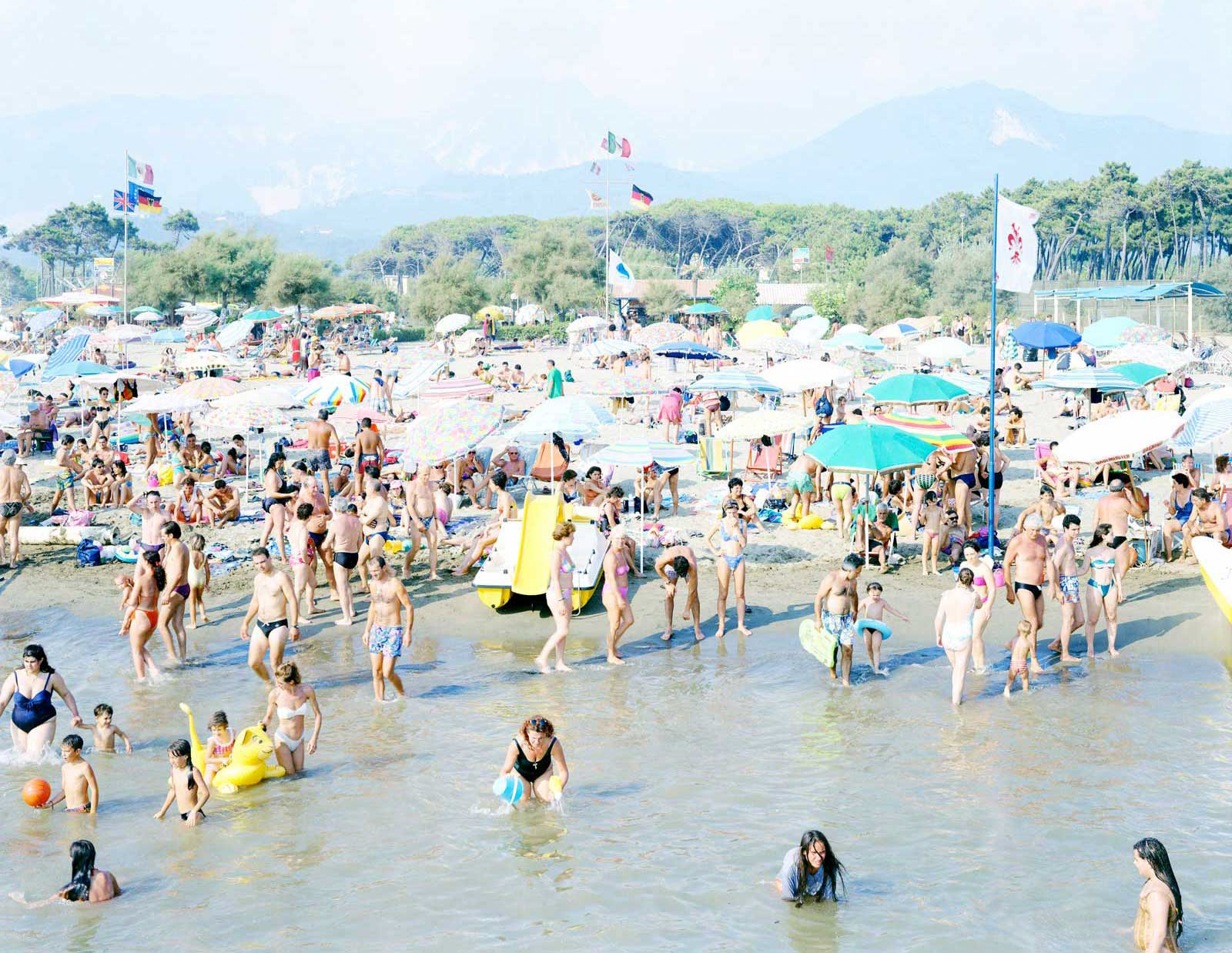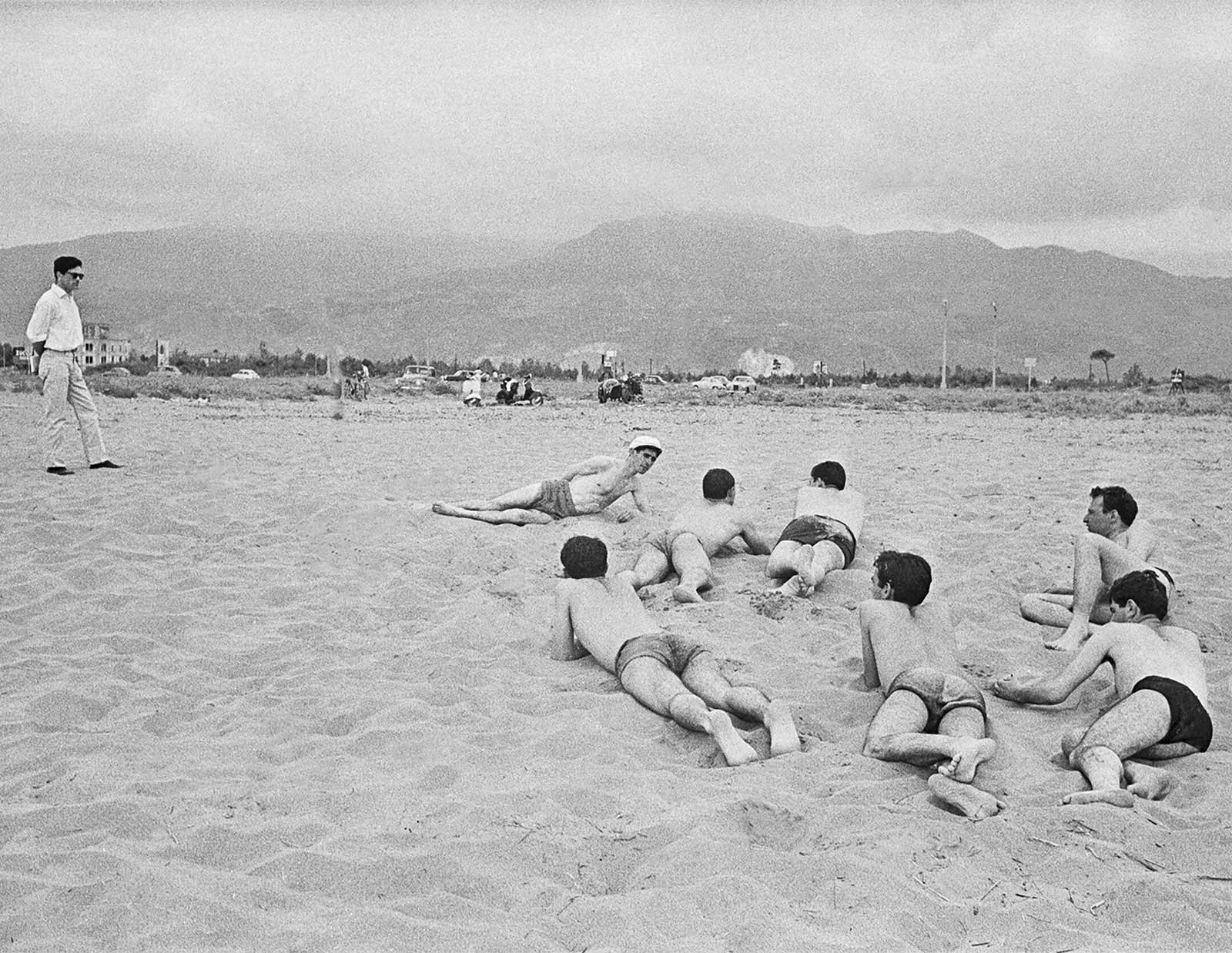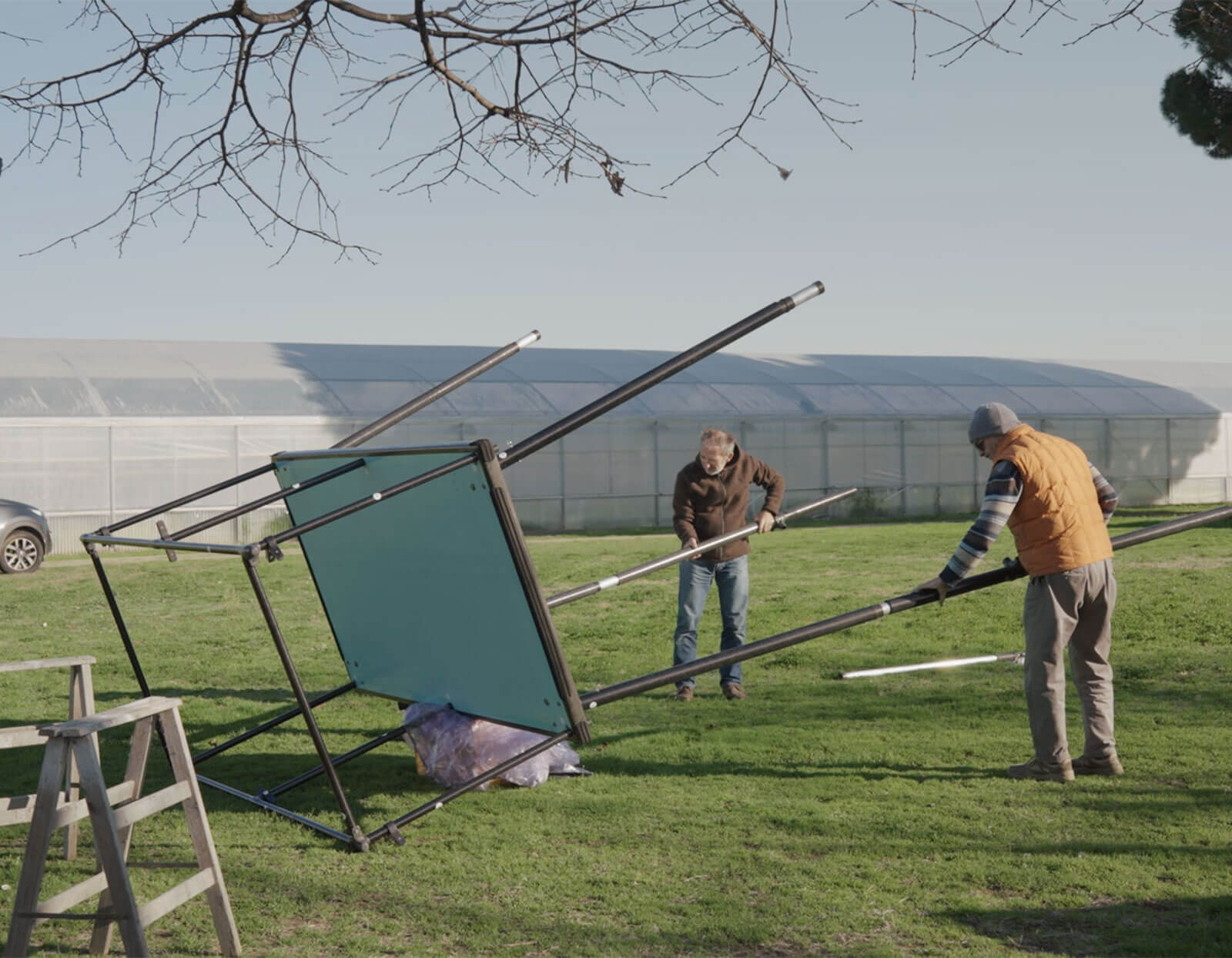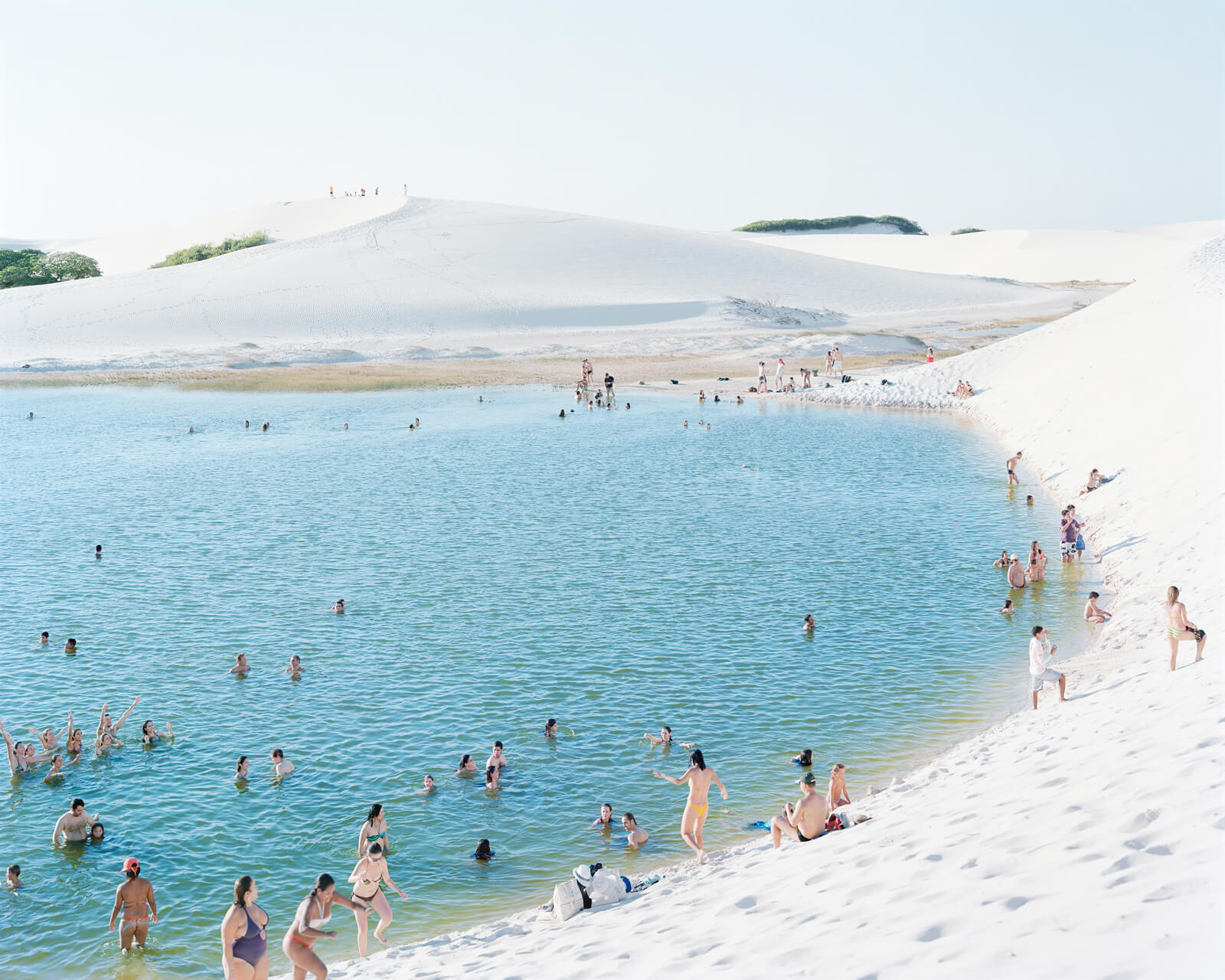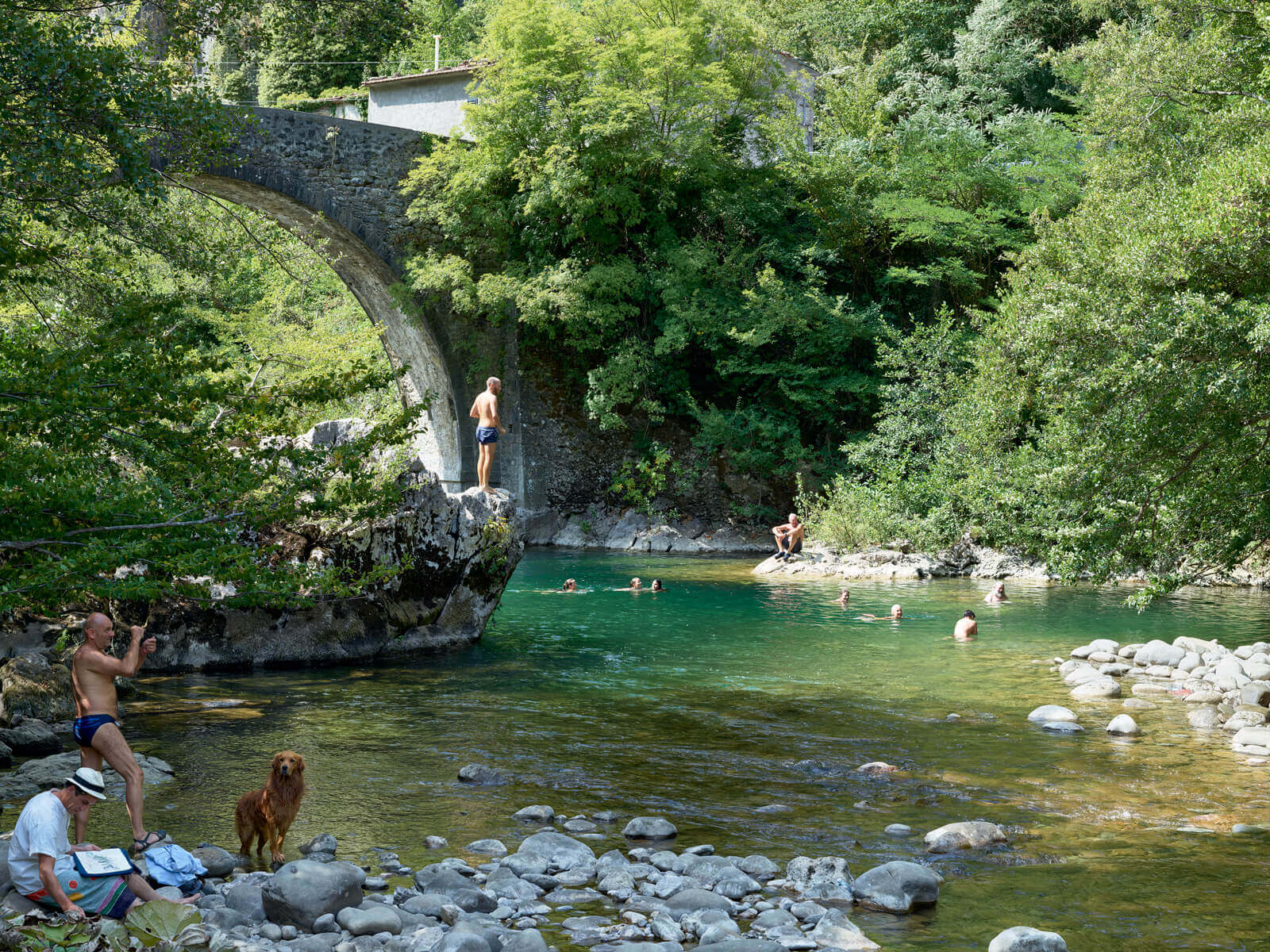March 5th, 2022 marked the centenary of the birth of the film director, novelist and intellectual Pier Paolo Pasolini, a leading protagonist of the Italian and European post-war cultural scene. In the social and anthropological research he undertook throughout his career, he repeatedly turned his gaze to the Italian beaches, as a terrain in which to study the behavior of his countrymen in a key historical and political moment, between the end of the war and the dawn of the economic boom.
In 1959 Pasolini was commissioned to do a reportage on Italian summer holidays for the magazine Successo, when he was a writer and had not yet begun his career as a film director. He traveled the entire Italian coastline: from Ventimiglia he went south and then went up north again to Trieste. His travel journal would later become The Long Road of Sand (“La lunga strada di sabbia”), eventually published in three installments in Successo magazine, along with the pictures taken by Paolo Di Paolo. With his commentary on contemporary coastal life, Pasolini was chronicling the changes in Italian customs and habits, presenting the social and political landscape of a country straddling between change and tradition, the affirmation of a concept of vacation that was about to become a mass phenomenon and the consequences of a difficult postwar period.
“Now I walk along the Cinquale beach, among all these memories against that great backdrop of the mountains of Versilia; and do you know what I see?
A gang of Emilian youths lying on their stomachs looking at a German girl, all a little plump and hairless, with one jokingly playing the epileptic.
A group of poor Germans: two young men and two girls, blond as corn cob.
A working-class family that has just finished eating outside of a Bedouin-like tent, reduced to a scullery, with a young man who goes to wash dishes in the sea.
Two broken-down bicycles leaning against each other, like two drunkards.
A Lambretta with a pair of greenish, gnawed suede shoes on it and the pedals.”1
